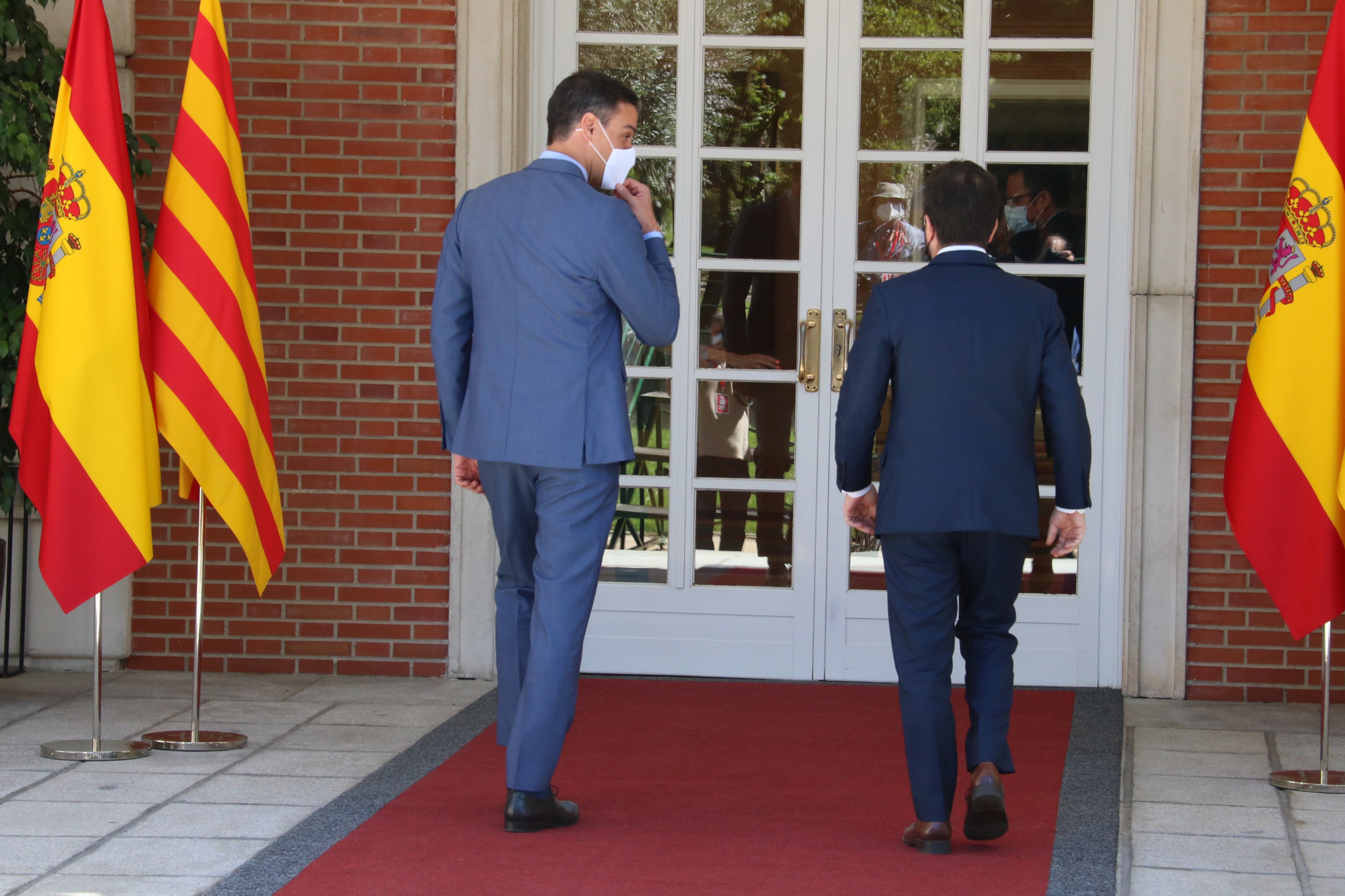It's taken a long time to confirm, but there's finally some news to give. Catalan president Pere Aragonès and Spanish prime minister Pedro Sánchez promised to reactivate the dialogue table during the third week of September, and so it will be. The two negotiating teams will meet this Wednesday in Barcelona. And both the president of the Catalan Generalitat and the Spanish PM will be there. The latter finally announced his presence during an interview with TVE tonight, following repeated requests from Aragonès. The scheduling of the meeting for Wednesday is so that it can fit in with his international agenda.
Thus, there will be a meeting on Wednesday in Barcelona. On the part of the Spanish government, there is already a confirmed line-up: one of the deputy PMs, Yolanda Díaz, minister of the presidency Félix Bolaños, territorial portfolio holder Isabel Rodríguez, transport minister Raquel Sánchez and universities minister Manuel Castells. Thus, the three Catalan ministers in the Spanish cabinet will all be there. Still to be confirmed is the delegation of the Catalan side.
The first and only meeting of the dialogue table took place before the pandemic, in February 2020. Since then, a year and a half ago, much has changed, starting with the two governments. On the Catalan side, after the disqualification from office of president Quim Torra and the holding of elections this February, the presidency changed colours, with Pere Aragonès assuming the post, and Catalan ministerial roles also changed. Similar switches have been made in Madrid. Before the summer, Pedro Sánchez carried out a major government reshuffle, with the appearance of new figures, such as the former mayor of Gavà Raquel Sánchez, and the demotion of other profiles, such as Miquel Iceta, who has moved from territorial policy to culture and sport.
What has not changed are the red lines and vetoes. While the Catalan government wants to address amnesty and a self-determination referendum, the Spanish state doesn't to hear anything about that. Pedro Sánchez insists on his "agenda for re-encounter", which he already handed to president Torra early last year and which, according to the Spanish executive, represents a substantial improvement in Catalan self-government. This could culminate, they say, in a new statute for Catalan autonomy.
This Monday, minister Miquel Iceta made it clear again: if the Catalan leadership wants to speak exclusively of amnesty and self-determination, "the meeting will be short and will not go anywhere." Iceta justified the delay in specifying the date and details of the meeting in terms of its complexity. He made a curious comparison: “In the peace talks after the Vietnam War they were discussing the shape of the table, negotiations usually have this complexity (…) In this case we are not talking about negotiation after a war, but to resolve a political conflict. "
The CUP sounds a warning
While the government of Pere Aragonès is preparing for this week's dialogue table meeting, its pro-independence ally on the left, the CUP, has jumped further ahead. And the far-left party continues to warn that this bilateral negotiating table will not work in resolving the political conflict in Catalonia. "People are demanding sovereignty, not autonomy," said MP Mireia Vehí. That is why she called on the Catalan government, "to prepare for a referendum in 2023", in the same vein as Scotland.

